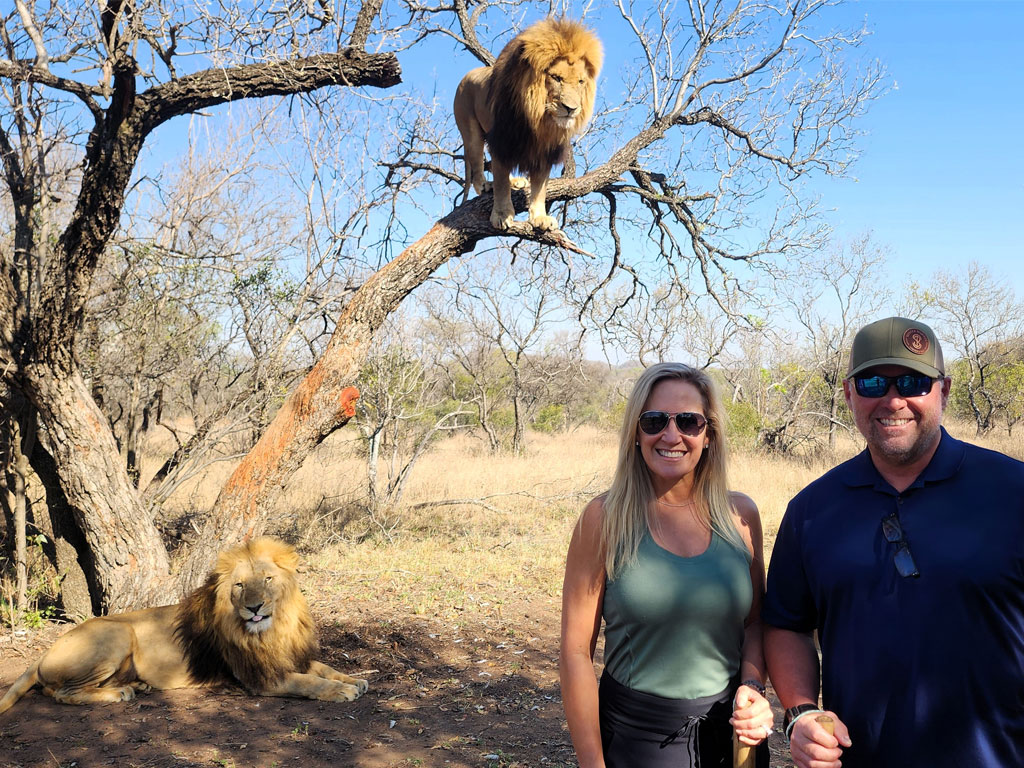Stepping onto the vast African plains for a safari is akin to stepping into another world. The sights, the sounds, the fragrances of the wild, all meld into a surreal experience. For first-timers, a South African safari is nothing short of magical. But like all adventures, it helps to be prepared. Here's what to expect and some travel tips to ensure your safari is unforgettable.
South Africa is home to the iconic Big Five: lion, elephant, buffalo, leopard, and rhinoceros. While spotting them is a priority for many, there's so much more. Antelopes, zebras, giraffes, and myriad bird species add to the tapestry of wildlife encounters. Remember: nature is unpredictable. While there's a good chance you'll see the Big Five, every safari is unique. It's the unexpected encounters that often become the most cherished memories.
Most safaris start at dawn, when animals are most active. Afternoon drives capture the day's waning hours. This schedule ensures the best wildlife viewing opportunities. Though early mornings might seem tough, the thrill of tracking a pride of lions or watching an elephant herd at sunrise is worth every yawn.

Neutral, earthy colours are best. They help you blend into the surroundings and don't attract bugs. Layering is crucial; mornings can be chilly, but it warms up by midday. A wide-brimmed hat, sunglasses, and high-SPF sunscreen protect against the African sun. Sturdy, comfortable shoes are a must for bush walks.
This is their home. Maintaining a respectful distance and minimising noise is vital. Listen to your guides; their expertise ensures not only great sightings but also your safety.
Binoculars bring distant animals into clear focus. A camera captures memories, but don't forget to experience the moment too. Pack a flashlight for nighttime, and a good insect repellent and malaria prophylactics (after consulting a doctor) are essential in certain areas.
Whether you're under canvas hearing the distant roar of lions or in a luxury lodge with all modern amenities, accommodations in South African safari parks cater to various tastes and budgets. Yet, even the most basic camps offer a unique charm – there's something about the African night sky that makes even the simplest settings seem enchanting.
Expect a fusion of African and Western dishes. From boerewors (traditional sausage) to bobotie (a spiced, baked meat dish), your palate is in for a treat. And after a day of game viewing, gathering around a campfire, called a 'boma', with a traditional South African braai (barbecue) is the perfect end.
A safari is as much about inner reflection as it is about wildlife watching. It’s about reconnecting with nature, understanding ecosystems, and the thrill of the unknown around every bend.
Armed with these tips, you're set for a life-altering experience. Welcome to the wonders of a South African safari!
For many countries, a visa isn't necessary for stays up to 90 days, but it's always best to check the latest visa requirements based on your nationality before your trip.
Like many countries, there are areas in South Africa that are safer than others. Generally, tourist areas are safe, but always be vigilant, avoid displaying signs of wealth, and heed local advice, especially after dark.
Consult with a travel clinic well in advance of your trip. Common recommendations include shots for Hepatitis A and B, Typhoid, and Yellow Fever. In some regions, malaria prophylactics might be advised.
Yes, hunters can bring their equipment, but it's vital to familiarise yourself with South African firearm regulations. You'll need to obtain a temporary firearm import permit for your stay.
The hunting season typically runs from April to October, with June to August being prime months, as it's the dry winter season which improves visibility and game concentration.
South Africa boasts a diverse range of game, from the Big Five (lion, elephant, buffalo, leopard, rhino) to plains game like kudu, springbok, and impala. Specific hunting licences and permits are required for each species.
Yes, ethical hunting practices are emphasised and enforced. This includes fair chase principles, hunting mature animals that have already reproduced, and avoiding females with dependent young.
Key items include: a good pair of binoculars, durable and comfortable boots, camouflage or earth-toned clothing for blending in, and a wide-brimmed hat for sun protection. Always check with your hunting outfitter for specific recommendations.
In most urban areas, tap water is treated and safe to drink. However, when travelling in rural areas or on safari, it's advisable to drink bottled water.
Yes, but there are specific regulations and paperwork required for exporting trophies from South Africa and importing them into your home country. Ensure you work with reputable taxidermists and shipping agents familiar with the process.
Always remember to consult with your outfitter or travel agency, as they'll have the most up-to-date information and can offer insights tailored to your specific journey.